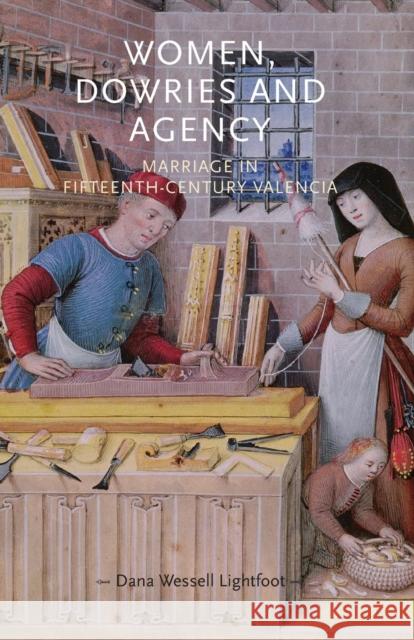Women, Dowries and Agency: Marriage in Fifteenthâ "century Valencia » książka
Women, Dowries and Agency: Marriage in Fifteenthâ "century Valencia
ISBN-13: 9781526106650 / Angielski / Miękka / 2016 / 240 str.
This book examines labouring-status women in late medieval Valencia as they negotiated the fundamentally defining experience of their lives: marriage. Through the use of notarial records and civil court cases, it argues that the socio-economic and immigrant status of these women greatly enhanced their ability to exercise agency not only in choosing a spouse and gathering dotal assets, but also in controlling this property after they wed. Although the prevailing legal code in Valencia appeared to give wives little authority over these assets, court records demonstrate they were still able to negotiate a measure of control. In these actions, labouring-status wives exercised agency by protecting their marital goods from harm, using legal statutes to their own advantage.
The key factors in this argument are the immigrant and labouring-status background of these women. Many women immigrated to Valencia on their own from smaller towns and villages. In doing so, these women moved outside of their natal families' sphere of influence, making them less embedded and subject to the authority of their kin relations. Labouring-status women worked themselves, most often as servants, to generate the necessary funds for their dowries. These factors gave wives of this status greater agency than elite women in contracting their marriages, providing dotal assets and challenging their husbands' authority over this property in dowry restitution cases. Without the influence of their natal families in making marital decisions, these wives were able to act independently in controlling their marital property, negotiating the structures of patriarchy to their advantage.
In looking at the experiences of labouring-status women, this monograph shifts the debate regarding women's access to and control of property in the medieval period. Exploring a group previously unexamined by scholars, it argues that our understanding of women's marital strategies changes, challenging the central role of blood and marital kin in these negotiations.











